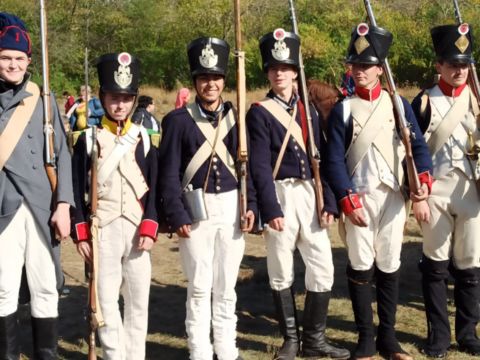The profession of a historian takes a very special place among professions created by people over the last several thousand years. At the same time the science of History, which is the foundation of the profession of a scientist historian, of a teacher or professor of History is relatively young – it is approximately a century and a half years old.
The profession of a historian emerges in countries, which reach high level of the economic, political, and cultural development, and where the governors begin to understand the importance and value of the scientific knowledge of the past, while common people realize that many of their everyday life problems root deeply in history.
The profession of a historian is one of the most self-contradictory professions of the modern world. On one hand, historians study the past, that is, something that will not repeat the way it used to be. On the other hand, it is namely the historians that many thoughtful people address when they need an explanation of the present and learn something important about the future. Historians work with ancient artefacts, manuscripts, memoirs, sometimes literally peeling off the mould of time, but they can also create historical databases, 3D reconstructions, or write original scenarios for computer games.
.jpg)
On one hand, the history is written by the winners. Students are explained this axiom already during their first year of studies at the university. The absolute majority of even professional historians believe in this formula throughout all their scientific life. On the other hand, the modern science of History is hearing the “voice” of the traditionally silent groups of population, which is not very loud as of yet, but it narrates about phenomena and processes that are very interesting for millions of people.
Often historians are asked or even required to give simple answers to complicated questions of the modern times, while people forget how difficult it is to search for answers to these questions in the depths of the distant past. The profession of a historian has always been as still is one of the very risky and fascinating professions. It has a past, a present and a future.
At South Ural State University you can learn the fundamentals of this profession and try your hand at researching and teaching the historical knowledge. Starting from 2016, professional historians are trained at the Department of Russian and International History. This subdivision of the SUSU Institute of Media, Social Sciences and Humanities has inherited the best practices of the Faculty of History established back in 2000.
Today, 5 doctors and 15 candidates of sciences (History) work at the department. It implements a three-level educational system: Bachelor’s degree programme (46.03.01 History), Master’s degree programme (46.04.01 History. Major: Modern Historical Research: Theory and Practice) and postgraduate programme (46.06.01 Historical Studies and Archaeology). From the very beginning of their studies, students and postgraduates are integrated into the department’s research work through participation in conferences, seminars and scientific symposiums, and are included into the grants research groups.
The department is closely collaborating with the Institute’s research structures: Eurasian Studies Research and Education Centre, Centre for Cultural Studies, Laboratory for Migration Studies, and Laboratory of Experimental Archaeology, where scientists from America, Canada, and France are working. Today, students can choose which skills they wish to learn: those of an office scientist or of a historian fulfilling applied projects.

All the department students take practical training in the South Ural Branch of the Institute of History and Archaeology of the Ural Division of Russian Academy of Sciences, State Historical Museum of the South Ural Region, Unified State Archive of the Chelyabinsk Region, and the Centre for Historical and Cultural Legacy of Chelyabinsk. Since 2018, the department students can master the skills of applied historical research and take part in the development of the “Historical Reconstruction of Chelyabinsk” and “Digital History of CMEI-CPI-CSTU-SUSU” websites.
The immersion into the profession is facilitated by the theatrical performances of the traditional “Rite of Passage for Historians”, public speeches and discussion podiums at the “Days of Historical Science at SUSU”, and master classes by the leading lecturers and practicing specialists in the historical knowledge.
The Historian Day is celebrated all over the world on March 28th. This is a professional holiday for all those who decided to connect their lives with the science of History. Our congratulations on this professional holiday to all those involved in the science of History: from students to scientists!
The SUSU Institute of Media, Social Sciences and Humanities is ready to welcome the applicants who wish to master the skills of the historical experience interpretation, learn to independently conduct research in History and Archaeology, bring to life science-educational and promotional historical projects.
You can find the detailed information on the admissions on the department’s website in the Applicants section.
You can get a consultation about the educational programmes in History at: Room 509, SUSU Main University Building, 76 Lenin Prospekt, Chelyabinsk, or by calling at 267-91-25, 267-92-15, or emailing at: nikonovaoi[at]susu[dot]ru.




